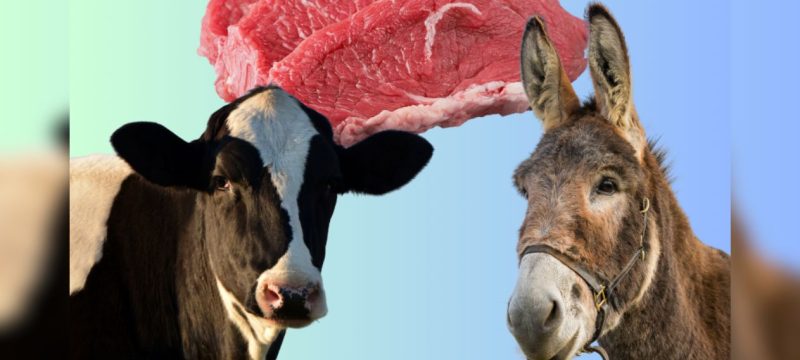On July 27, the Islamabad Food Authority (IFA) conducted a major raid on an illegal slaughterhouse in Tarnol, just three miles from Pakistan’s capital.
Authorities discovered a shocking 1,000 kilograms of donkey meat and over 50 slaughtered donkeys. This significant bust has raised alarms about the illegal trade of donkey meat in Pakistan, posing serious food safety, health, and ethical concerns.
Pakistan has strict regulations prohibiting the sale and consumption of donkey meat. Despite this, a growing black market has emerged, driven by illegal slaughterhouses and foreign exports. The IFA’s discovery has sparked a national conversation: how can consumers distinguish between donkey meat and cow meat before it reaches their plates?
The Seriousness of the Issue
The illegal donkey meat trade presents multiple risks. For Pakistan’s Muslim population, consuming donkey meat is considered haram (forbidden) according to Islamic law.
In addition to the religious implications, there are also public health risks. Donkey meat is often slaughtered without proper veterinary inspection, making it a potential source of diseases.
Furthermore, donkey meat is commonly passed off as beef in butcher shops and restaurants, deceiving consumers. This consumer fraud has become a widespread issue that needs immediate attention.
How to Identify Donkey Meat
Veterinarian Dr. Muhammad Ali has shared essential tips for identifying donkey meat. According to Dr. Ali, it is not difficult to differentiate between halal beef and donkey meat if you know what to look for.
1. Color
- Halal Beef: Bright cherry red.
- Donkey Meat: Very dark red with a bluish tint. Dr. Ali notes that donkey meat has a unique, dark color with a noticeable blue shade.
2. Smell
- Beef: Rich and familiar aroma when cooked.
- Donkey Meat: An unusual, strong odor that sets it apart from beef.
3. Laboratory Tests
To confirm suspicions, laboratory tests such as ELISA (Enzyme-Linked Immunosorbent Assay) and PCR (Polymerase Chain Reaction) tests can detect animal-specific proteins and DNA, respectively.
What Consumers Should Do
In light of these developments, consumers are urged to take precautions:
- Buy from reputable sources: Purchase meat only from licensed butchers or trusted stores to avoid unknowingly buying donkey meat.
- Be cautious when eating out: Avoid small, unregulated eateries offering suspiciously cheap beef dishes. If in doubt, ask about the meat’s sourcing.
- Push for transparency: Encourage local food authorities to carry out regular meat inspections and hold violators accountable by making their names public.
In conclusion, the discovery of donkey meat in Tarnol highlights a growing illegal market that poses serious health and ethical challenges for consumers.
By staying vigilant and informed, people can protect themselves and ensure they are not deceived into consuming donkey meat.
In other news read more about Islamabad Food Authority Recovers Over 50 Donkeys and 1,000 kg of Meat in Tarnol Raid









